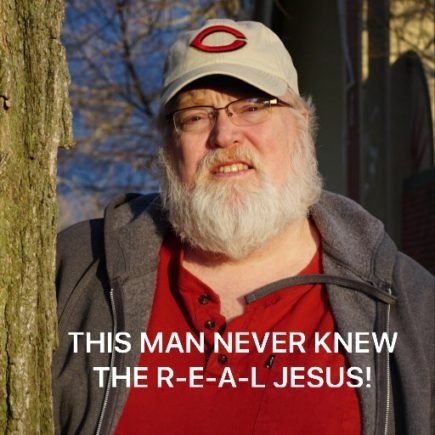
A reader recently asked:
I was wondering, Bruce, if you had still been an evangelical these past 10 horrible years, do you think you would have supported Trump?
Evangelicalism is somewhat of a big tent, encompassing people who are rigid Fundamentalists, such as those found in the Independent Fundamentalist Baptist (IFB) church movement, liberal/progressives, such as those found in the emerging/emergent/red letter movements, and everything in between. I was born into, raised, and educated in IFB churches. I was as right-wing as you could be. I maintained this worldview until I was thirty years old.
Every preacher enters the ministry with a borrowed theology and worldview — that of his parents, family, tribe, church, and college. This is normal. Sadly, many Evangelical preachers never move beyond this point, believing the same things at sixty as they did at age twenty-five. In fact, these preachers pride themselves in not changing their beliefs, thinking they got everything right from the start. In my case, my beliefs slowly, gradually, at times imperceptibly, changed, usually moving to the left towards more tolerant, inclusive, nuanced beliefs. To those on the right of me, I was becoming a liberal. For those on the left, I was still too Fundamentalist for them.
I was a flag-waving Republican through and through. Vote for a Democrat? Never. (Though I did vote for Jimmy Carter in 1976, believing him to be an Evangelical Christian.) For the next twenty years, I voted Republican. As my beliefs continued to evolve, I slowly embraced progressivism, liberalism, socialism, and pacifism — though I was still Evangelical theologically. The United States’ immoral wars in the Middle East and the incessant warmongering by Republicans (and to a large degree Democrats too) challenged my continued support of the Republican Party. I voted Democrat for the first time in 2000, as I have every general election thereafter.
In 1998, President Bill Clinton faced impeachment over the Monica Lewinsky scandal. I preached several sermons about Clinton’s lack of moral and ethical values, saying, that I could never, ever vote for such an immoral man. While I knew that no politician was a pillar of virtue and morality, I had, in my mind, a line that couldn’t be crossed if a candidate wanted my vote. I concluded that it would be better not to vote than to lend my support to candidates lacking basic moral character.
Fast forward to 2016 and the messianic arrival of Republican Donald Trump. By then I was an atheist and a humanist. I saw no possible way that I could vote for Trump and still sleep at night. Had I still been an Evangelical preacher, I do not doubt that my viewpoint would have been the same. Donald Trump is a jingoistic, bigoted, misogynistic narcissist and bully; a man lacking any sort of moral and ethical foundation; a man who only cares about money, power, and influence. Trump doesn’t care one wit about me, my family, and our needs.
If I were still an Evangelical, I still wouldn’t have voted for Trump. I probably would have either voted third party or not cast a vote at all. Trump is unfit for office, an ugly, vicious, small-dicked little man who cares nothing for anyone but the uber-wealthy and his bottom line. I could not and would not, in any circumstance, vote for Trump, no more than I could have voted for Bill Clinton decades ago.
The 2024 election finally taught me that the American political system is irreparably broken; and that it is time for a total overhaul of how we do elections. The system cannot be fixed, it must be burnt to the ground. We have reached a point where it is evident, at least to me, that both political parties are rotten to the core — a fact that became crystal clear to me when, in 2016, the Democratic National Committee deliberately manipulated the primary process to keep Bernie Sanders from becoming the party’s general election candidate. While I remain a Democratic Party executive committee member for Defiance County, I am not certain how much longer I plan to be so. I see no signs of life among Democrats, just a lot of finger-pointing and blame as they try to explain how Trump won another election. Sometimes, the only answer is to start over.
Twenty-five-year-old Pastor Bruce likely would have voted for Trump, mainly due to his “pro-life” stance on abortion. Those days of being a single-issue voter are long gone. Trump isn’t actually pro-life. He knows he needs Evangelicals to vote for him if he expects to win. So he tells them what they want to hear, hitting all the red meat, hot-button culture war issues. As far as I can tell, Trump has no moral or ethical values, Yet, it seems Evangelicals no longer care about morality. All that matters is political power and advancing their theocratic agenda (as we are seeing with Project 2025).
Bruce Gerencser, 68, lives in rural Northwest Ohio with his wife of 47 years. He and his wife have six grown children and sixteen grandchildren. Bruce pastored Evangelical churches for twenty-five years in Ohio, Texas, and Michigan. Bruce left the ministry in 2005, and in 2008 he left Christianity. Bruce is now a humanist and an atheist.
Your comments are welcome and appreciated. All first-time comments are moderated. Please read the commenting rules before commenting.
You can email Bruce via the Contact Form.

